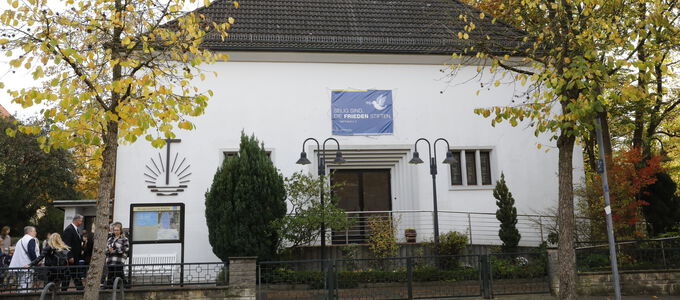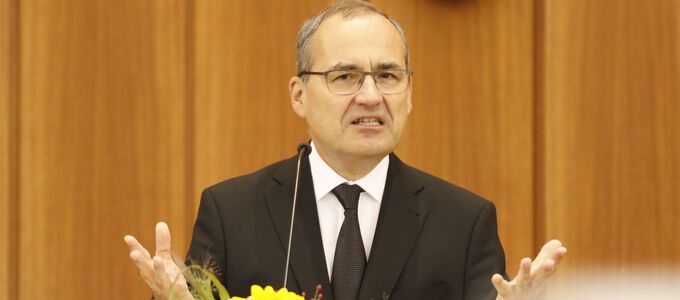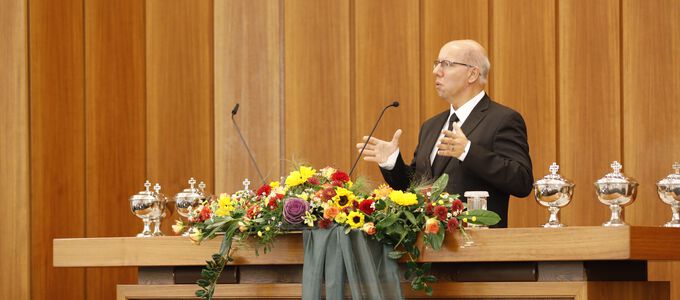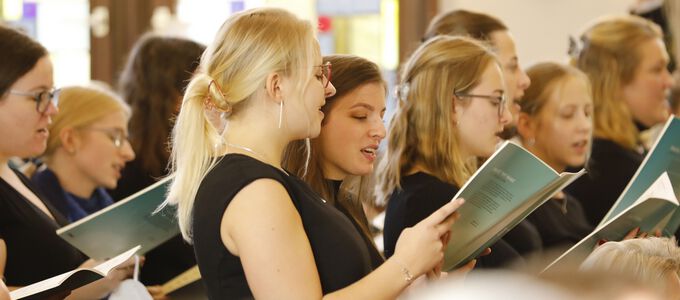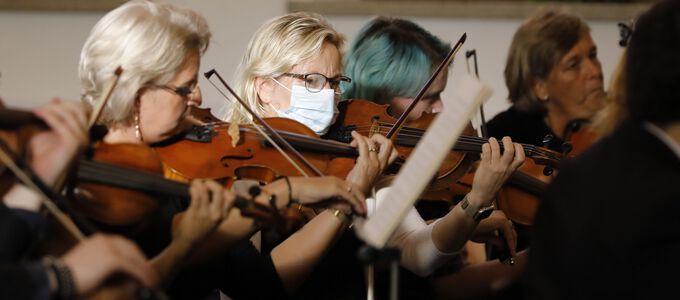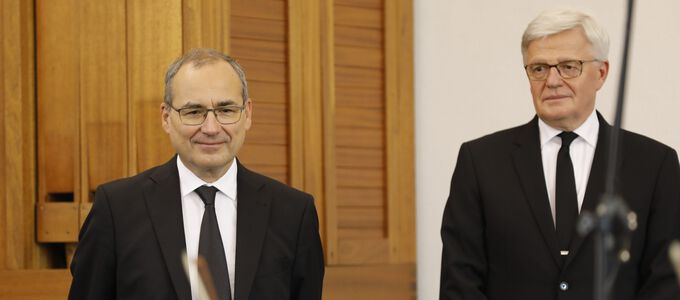
Those who experience their faith as a gift want to share and communicate that. But an invitation is only the first step. Intercession always goes a little further. How? This is described in a divine service by the Chief Apostle.
“The Lord is very close to us, as close as we allow Him to be.” This is how the sermon began in Kiel, Germany, on 30 October 2022. That it is not enough to simply extend an invitation is demonstrated in 2 Chronicles 30: 18–20: “For a multitude of the people, many from Ephraim, Manasseh, Issachar, and Zebulun, had not cleansed themselves, yet they ate the Passover contrary to what was written. But Hezekiah prayed for them, saying, ‘May the good Lord provide atonement for everyone who prepares his heart to seek God, the Lord God of his fathers, though he is not cleansed according to the purification of the sanctuary.’ And the Lord listened to Hezekiah and healed the people.”
The biblical context
The new king of Judah, Hezekiah, had admonished the people to return to the Lord and prepared a feast. “He summoned the people to celebrate the Passover to show the Lord: we are returning to You,” explained Chief Apostle Jean-Luc Schneider. The king had invited not only his kingdom of Judah, but also neighbours to the north, from the country of Ephraim and Manasseh, as far as Zebulun: “Come to Jerusalem and celebrate with us. Let us serve the Lord together. Let us worship together.”
Many laughed at the invitation, but some came to Jerusalem to celebrate the Passover. Hezekiah noticed that the guests had not cleansed themselves as written, which was certainly considered a problem by the Mosaic Law. The king interceded for his guests before God and He heard the prayer and blessed all the people, without exception.
The invitation
The Chief Apostle brought out clear parallels to the present day: “Let us proclaim the benefits of God,” it says in Peter’s epistle. We do that by participating in divine service and serving others. We must set an example in this and profess: my God is here. This is where we come together to experience and serve Him.
Professing what we believe also includes extending invitations to others: “Let us bear witness by our deeds, by our conduct, and by our spoken testimony: Christ is here.” This invitation is extended to all people, both in this world and in the hereafter.
Intercession
It is not enough to merely extend an invitation. Interceding for those who have been invited is just as important, as the example of Hezekiah shows. Intercession reaches the souls in their many different circumstances.
- Those who are far away from God. Many souls do not know that Jesus Christ exists. “Or they have a totally wrong conception of God, a totally wrong idea of Jesus Christ.” The Chief Apostle formulated the intercession: “God, why don’t You give them the opportunity to hear and accept the message of salvation?”
- The enemies of God. “Let us also pray for the enemies of God, for those who did not follow the Lord at all.” We must be aware that everyone needs grace: “We are not better than they are. All of us are sinners! I cannot do anything to earn salvation. It is nothing but grace. And if the Lord has given grace to me, why should He not give grace to my neighbour?”
- All those who missed the chance. Hezekiah prayed for those who, although they had come to God, could not or would not cleanse themselves. Today, many people do not make use of the opportunity to receive the gift of the Holy Spirit. And others are reborn of water and the Spirit but do not take the offer of God seriously. “It is very important to us that they too get another chance to attain salvation.”
Professing our beliefs
When we intercede for others their situation will not change immediately. Everyone must still accept the message for themselves and follow the Lord, the Chief Apostle said. However, intercession is also important for the person praying: “When we intercede for others this also says something about our heart’s attitude. It is an expression of our faith. Through intercession we also profess the importance of our faith.”
Like Christ in the high priestly prayer, the congregation should pray for unity. In addition to the prayers for earthly things, however, one plea should be uppermost: “Give us strength to remain faithful no matter what.” The Chief Apostle also appealed to the congregations to pray for their ministers.
Moreover, intercession is a witness to Christ’s love, he said: “Our love for our neighbour is only proof that we are growing into the nature of Jesus Christ, and the more we grow into it, the greater our love for our neighbour becomes.” The desire for human justice no longer arises, but the plea: “Let them all participate in the salvation of Christ.”
Those who come before God and intercede for their neighbour also profess the one certainty: fellowship with Christ makes one forget all the suffering that a person can experience. For, as the Chief Apostle put it: “In the kingdom of God everyone will have everything.”






